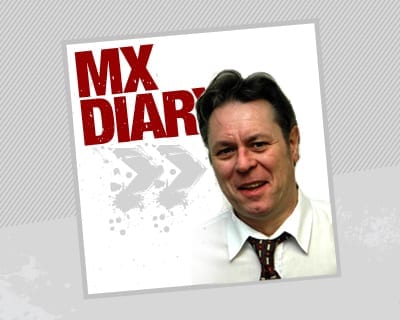Times are a changing...
By John Dickinson on 19th Aug 11

As Yamaha pulls out of World Superbikes, editor JD takes a quick look at what's going-on in the motorcycle industry..
Sometimes, in order to make sense of what is going on in your own back-garden, you have to take notice of what's happening over the fence. Sometimes it makes no difference what's going on over there – sometimes it does. The important thing is to keep watch.
Which is why I keep one eye at all times on the comings and goings of all things motorcycling. It pays to follow all the other sporting disciplines, including the tarmac scratchers, plus the road riding side which is obviously where the manufacturers make the majority of their sales.
Which is how I noticed that Yamaha has announced its intention to withdraw its factory team from the World Superbike series next season. "So what?" you say, and you are very likely right to do so.
There was of course a very corporate reason for it doing what it did which included, in the press release "...a full strategic review of the Marketing Operations within Europe including all motorsport activities and takes into account the continuing severe and rapidly changing Powered Two Wheeler market conditions throughout the region."
I'm sure it did. Various posters on message boards worldwide (most of whom haven't a clue as to how Yamaha functions – nor do I for that matter) rapidly came up with their own conclusions and they were many and varied. It was because Superbikes are about to change the rules, or Superbikes and MotoGP are to join forces, etc, etc.
Reading between the lines I just took it to mean that sales of new bikes or profits or both must be moving in the wrong direction and the racing has just become too costly.
Quick history lesson. Superbikes was originally dreamed-up as a World Championship series, based on tuned production machines, which would make for a cost effective series that road riders could actually relate to. Obviously the factory that had the sportiest, lightest, most powerful (or most easily tuned) proddy bike was the one in power.
For what it's worth, that factory was Ducati. Now, back then the born-again biking phenomenon was in full flow and so with plenty of sales to be had from relatively wealthy 40-somethings the factories went off on a 20-year long development spree that turned things on its head, from developing road machines into race bikes to effectively designing race machines and then de-tuning them into road bikes.
Fast forward 20 years, those 40-somethings have turned into 60-somethings and, while they can still afford the 2012 'YamSuzKawHon' their ageing bodies can no longer ride them. And as there is no new born-again generation coming up behind to fill the gap, that, to me – and you can dress it up however you like – is the problem in a nutshell.
Back to Yamaha and their press release which goes on to say: "Due to this decision more resource and focus will now be used for direct 'Customer' activities to ultimately add more value to Yamaha ownership and increased Customer Satisfaction."
Which means, hanging on to the customers we still have. What gives most customers most satisfaction is of course less expensive bikes at point of sale – but that's another story.
Does this have any effect on off-road? Probably not directly but in general off-road is towed along by the road/ road racing side of the business and benefits, or otherwise, from what goes before.
Thus off-road eventually got aluminium beam frames, titanium valves, fuel-injection, etc, etc after they became the norm on the road/ roadrace side of things. Nothing wrong with that, at least we have benefitted from all the millions of development costs that went into that technology.
It sometimes crossed my mind that off-road didn't actually NEED some of that technology. Ducati managed with a simple steel trellis frame even in MotoGP until just a couple of years ago while KTM does very nicely thank you with similar chassis in motocross and enduro.
Development for development's sake, and the costs associated with it, isn't necessarily always a good thing. If the costs involved simply results in driving the cost of production bikes up, leading to less sales, where is the benefit? There's certainly evidence that those who have hiked their prices away from the accepted norm are now suffering. I leave you to fill in the blanks.
It continues to worry me that off-road will be afflicted by more and more electronic aids by the factories with the likes of traction control and ABS. Leaving aside the extra complexity and cost, I want to see the rider continue to be the dominant part of the rider/bike partnership.
Superbikes and MotoGP are both being hamstrung by this artificial intelligence. Basically, the fans want the electronics banned and the riders back in control.
The factories appear to want radio controlled bikes demanding minimal rider input. He/she opens the throttle and applies the brakes as hamfistedly as he/she likes – the clever machine sorts it all out. They aren't quite there yet but it is still heading that way. I hope it stays right out of off-road.
All that just because Yamaha is pulling out of World Superbikes...


